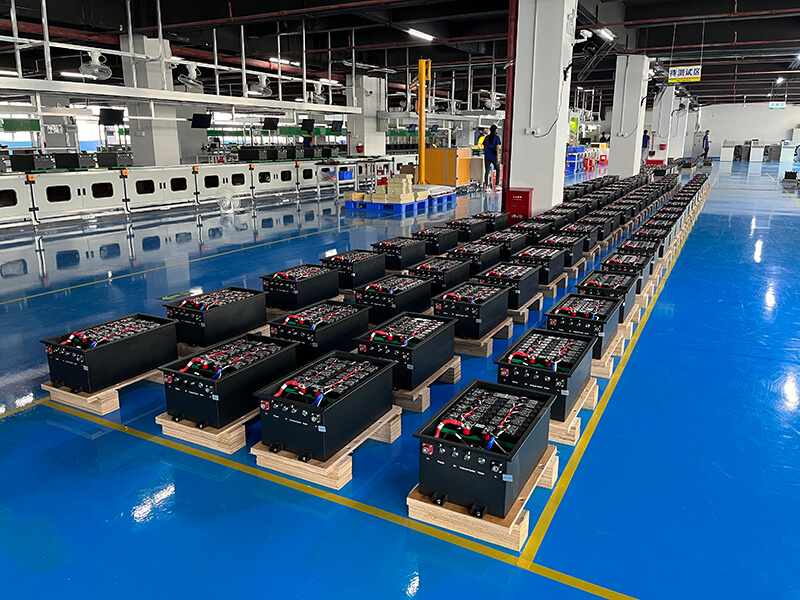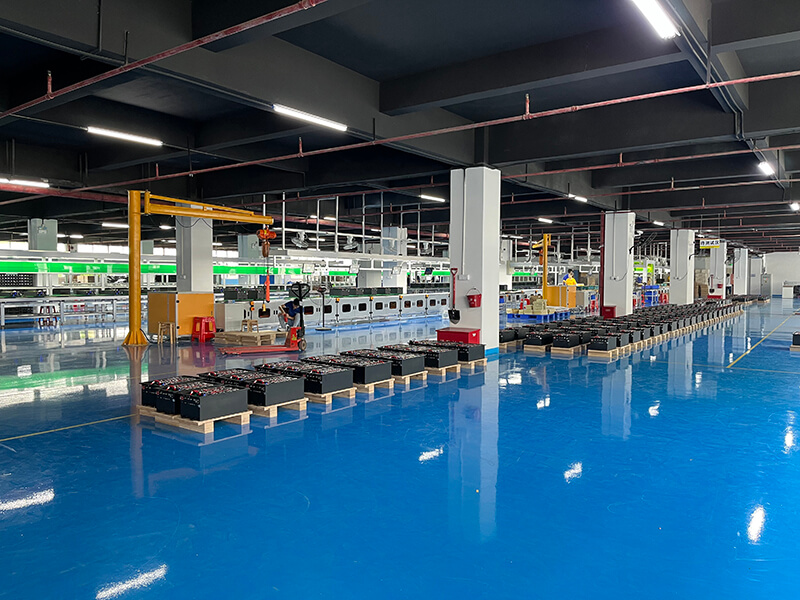The growing popularity of LiFePO4 batteries can be credited to their high energy density, extended lifespan, and superior safety as compared to traditional lead-acid batteries. However, in order to fully maximize the advantages of these batteries, it is crucial to understand the correct storage procedures. Properly storing LiFePO4 batteries ensures their durability and helps prevent any potential risks or dangers.

Why Is It Crucial to Store LiFePO4 Batteries Correctly?
LiFePO4 batteries, also known as LFP batteries, require fewer safety precautions compared to conventional lead-acid batteries and other types of lithium-ion batteries. LFP batteries utilize stable iron compounds and do not generate dangerous gases or pose explosion risks. However, considering that LiFePO4 batteries are a significant investment, it is important to store them properly to ensure that your money is not wasted.
Tips to Store LiFePO4 Batteries
Disconnect Before Storing
Many customers have main switches in place to cut off power to the batteries. However, we strongly advise taking an additional step to ensure a complete disconnection of the batteries. This is because various components in recreational vehicles (RVs) may be still operating, such as the C02 sensor, backlit stereo, or certain emergency sensors, which may be bypassing the main disconnect switch. To guarantee optimal battery storage, it is highly recommended to physically disconnect both the positive and negative wires from the lithium batteries. By doing so, you can prevent any discharge during the storage period and ensure an ample charge in the LiFePO4 batteries when you decide to use them again.
LiFePO4 batteries have a low self-discharge rate of 3% per month, meaning that when these lithium batteries are stored, they will lose 3% of their charge capacity each month. To prevent a higher discharge rate, we advise disconnecting all power sources from the batteries during storage. Additionally, it is important to store LiFePO4 batteries with a state of charge (SOC) of 50% or higher, especially for longer storage durations. For excellent retention of charge after the storage period, it is recommended to charge the batteries to 100% and store them in this fully charged state.
Store LiFePO4 Batteries in Cold Weather
LiFePO4 batteries may not be adversely affected by low temperatures, as they result in slower chemical reactions within the batteries. However, it is important to note that extremely cold temperatures can potentially lead to the cracking of the plastic casing. To ensure the longevity of lithium batteries, it is recommended to store them indoors and avoid exposing them to extremely cold temperatures.
Store LiFePO4 Batteries in Hot Weather
Storing LiFePO4 batteries in high temperatures or under direct sunlight can be extremely dangerous for the batteries. Excessive heat can lead to internal overheating, triggering unwanted chemical reactions that may drop the battery voltage or even cause battery fires. Hence, it is crucial to avoid storing the batteries in hot environments or exposed to outdoor sunlight for long periods.
Ideal Storage Temperature for LiFePO4 Batteries
The ideal temperature range for storing LiFePO4 batteries depends on the duration of storage:
Storage up to 1 month: -20 to 60°C
Storage up to 3 months: -10 to 35°C
More than 3 months: 15 to 35°C

Risk of Not Charging Before Storage
Storing LiFePO4 batteries without charging them may lead to significant consequences. Due to a 3% self-discharge rate, the batteries can be over-discharged. The discharge level can potentially fall below the protection level provided by the Battery Management System (BMS). That’s why it is vital to charge your lithium batteries prior to storage. Additionally, it is highly advisable to store the lithium batteries at room temperature, especially when storing them for an extended duration.
Conclusion
Compared to other lithium-ion or lead-acid batteries, LiFePO4 batteries are simpler to store thanks to their low self-discharge rate and various benefits. However, it is essential to have a good understanding of the proper storage methods for LiFePO4 batteries to preserve their health. Furthermore, selecting high-quality LiFePO4 batteries can ensure long battery life and optimal performance.
Check out the lithium batteries made by Polinovel. We provide premium lithium battery solutions with Grade-A LiFePO4 cells, intelligent BMS, robust structure, etc. Our range includes standard models and custom battery solutions to cater to various requirements. Additionally, we provide the option to include a self-heating function for cold weather applications and Bluetooth connectivity for real-time monitoring of battery status.

